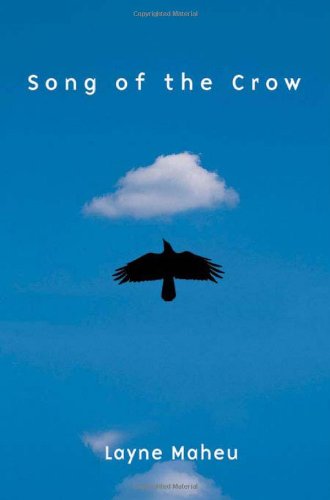Song of the Crow
Song of the Crow retells what is, perhaps, the Western world’s most widely-known creation myth – the story of Noah and the flood – through the voice of a crow. The bird, named “I Am,” has been born with white feathers below one eye, indication of the gift of prophecy. The other crows term this gift a Misfortune, but for the reader, I Am’s keenly human and yet not-human insight offers a fascinating perspective on the familiar story.
From the moment the fledgling crow first peers over the edge of the nest, he perceives the bizarre creature known as Noah will bring about the end of his world – by chopping down the tree where he lives, through the deluge and beyond – yet their stories are intimately entwined.
Throughout the book, Maheu skillfully weaves the natural history of crows into the narrative. As with any talking animal story, one would expect a tendency to anthropomorphize, but I was brought up short again and again by the complete “otherness” of I Am’s perspective. Maheu gives us no naïve misunderstanding of Noah’s actions or intentions, such as referring to Noah’s children as his fledges. Rather, I Am offers intelligent insight into the sometimes backward or misguided actions of every occupant of the ark, bird, human, animal, right down to the viruses that swarmed aboard unnoticed. This preternatural ability to distill and convey the truth of a bird’s perspective is even more impressive for the fact that this is Maheu’s first book.
Maheu’s prose is stark and lovely – practical, as you would expect a crow to be. Song of the Crow is a must read for lovers of literary fiction, natural history, mythology, and for anyone who loves a book that will permanently change their perspective.










